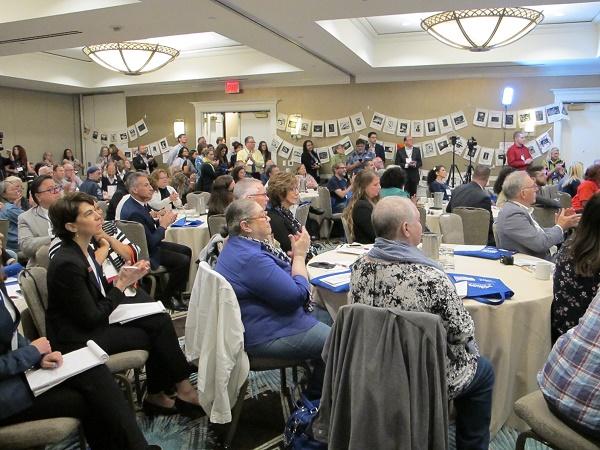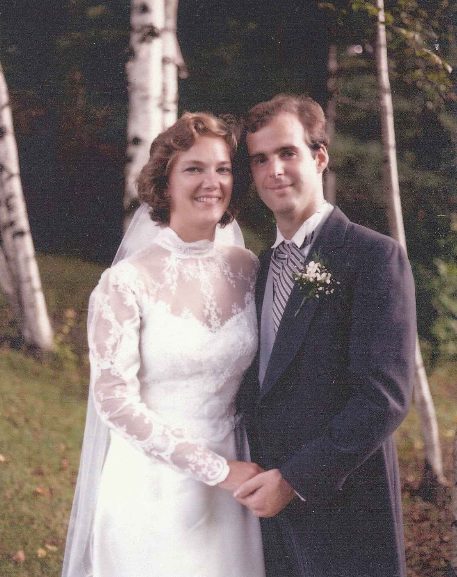Make a donation to the museum
Q&A: Voices of Sept. 11’s Mary Fetchet on Coping with Trauma
Q&A: Voices of Sept. 11’s Mary Fetchet on Coping with Trauma

The 9/11 Memorial and Museum, in partnership with VOICES of September 11th, will host a special program tonight for those affected by the 1993 and 9/11 attacks. “25 Years Later: The 1993 World Trade Center Bombing, Then and Now” will feature personal stories told by those who experienced the 1993 attack firsthand and discussion about long-term emotional recovery. Click here to register.
In advance of tonight’s program, Mary Fetchet, founding director of VOICES of September 11th, discusses her work with the 9/11 community and the mental health challenges faced by survivors of mass trauma.
What are some of the mental health challenges that individuals directly impacted by the 1993 World Trade Center bombing might still face more than 25 years after the attacks?
Some of the individuals who were directly impacted in the 1993 World Trade Center bombing may still be experiencing a range of long-term effects 25 years after the attack. Many that evacuated the building in 1993 returned to work at the World Trade Center and narrowly survived the terrorist attacks on Sept. 11, 2001. In both cases they may have lost friends and colleagues, so in addition to escaping a life-threatening event, they may also be mourning the loss of a loved one.
Although there has been some improvement since 9/11, generally the needs of survivors were overlooked. At the time little was known about the association between survivors and symptoms of PTSD or other mental health conditions they may have been experiencing. Most were told “they were lucky” they were alive.
Anniversary events, and the increase of other acts of terrorism and mass violence – most recently in Las Vegas, Texas and New York City – may be vivid reminders of their harrowing personal experience.
Are there any lessons learned that can be applied to support those affected by 9/11 and other mass trauma events?
Over the past 16 years our staff has learned a lot from the victims’ families, survivors and first responders that we’ve worked with. For most people healing is a journey, and we have found everyone grieves differently and on their own time schedule. Although their lives are never the same, many are able to move forward, while others experience ongoing challenges that require long-term support services and mental health care. We’ve also learned that traumatic events impact individuals well beyond the families – those who survived and those who responded also need support. It is critical that the mental health community recognizes the importance of early interventions, while understanding the importance of long-term support for all those affected.
What sort of support does your organization, Voices of September 11th, provide to communities affected by mass violence and disaster? Tell us about some of the misconceptions that people might have about the work that you do.
VOICES provides long-term mental health support and a wide range of programs that promote resiliency in the lives of thousands of individuals and families we work with every day. Our staff provides access to resources, assessments and referrals for mental health conditions, and educational conferences and workshops. We are also strong advocates for the needs of victims’ families, survivors and responders and have made the long-term commitment to providing services well beyond when the cameras disappear and federal funding is available.
Through VOICES Center of Excellence for Community Resilience initiatives, we work collaboratively with our public and private partners to conduct research and educational programs to assist communities, throughout the United States and abroad, in preparing for and responding to other acts of terrorism and mass violence.
Some common misconceptions that people may have is that VOICES “only deals with 9/11 issues, and their event is different.” Yet there are more similarities than differences when a community is tasked with providing support to victims’ families and survivors. There is also the misconception that “it will never happen to me,” yet the sad reality is that acts of terrorism and mass violence seem to be happening more frequently and communities are often unprepared.
What are some of the ongoing projects VOICES is undertaking?
VOICES provides a range of support services and programs for 9/11 families, survivors and responders. We host annual conferences for the 9/11 community and individuals impacted by other tragedies to gather together and learn from subject matter experts who have expertise in mental health, victims’ services and public policy, to mention a few.
This is our sixth year working in partnership with the Centers for Disease Control to assist survivors and responders in accessing treatment from the World Trade Center Health Program for mental health conditions and life-threatening illnesses due their exposure to toxins in the aftermath of the attacks.
VOICES staff continues to work with families on the 9/11 Living Memorial Project that commemorates the 2,977 lives lost and documents stories of survivors.
In collaboration with our public-private partnerships, we are conducting research to assess the long-term needs of those impacted by terrorism and mass violence, and developing resources and training. We participate in conferences in the United States and abroad to share our expertise and lessons learned with mental health providers, emergency managers, law enforcement and international counterterrorism officials.
By 9/11 Memorial Staff
Previous Post
Museum Reflects on 25th Anniversary of 1993 World Trade Center

At 12:18 p.m. on Feb. 26, 1993, terrorists drove a rental van into the World Trade Center’s below ground parking garage and detonated a bomb. Six innocent people were killed, including a pregnant woman.
Next Post
Highlighting Stories of Love in the 9/11 Memorial Museum’s Oral Histories

The oral histories collected by 9/11 Memorial Museum span the range of the whole human experience. These stories of bravery and loss, endurance and suffering and life and death often have one element in common: love.